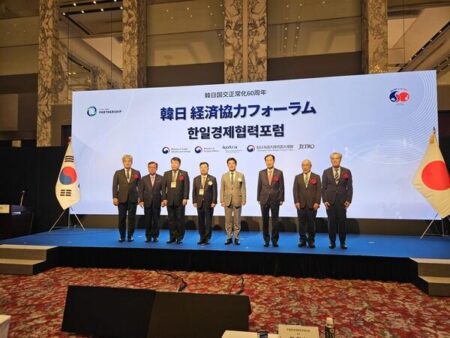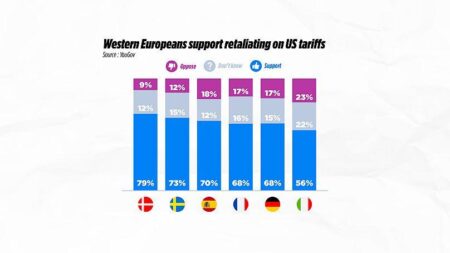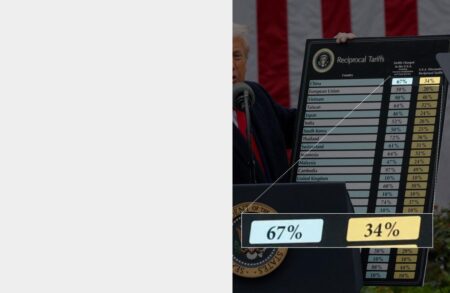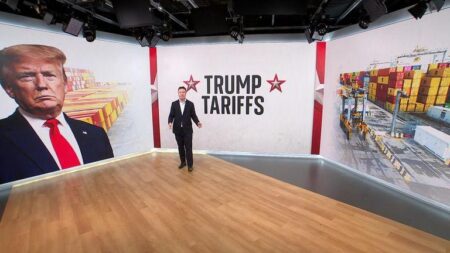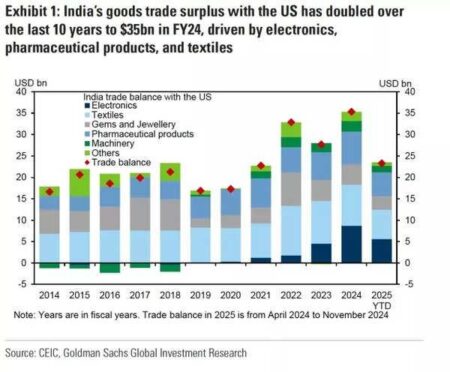Nissan has revealed a major cutback in the production of its popular Rogue model for the US market, attributing this decision to the rising tariffs on imported vehicles. This shift highlights the hurdles that automakers are navigating in an ever-changing landscape of trade policies
Browsing: import tariffs
The S. Korea–Japan Economic Cooperation Forum convened in Tokyo amid escalating tariff pressures from the Trump administration. Leaders from both nations sought to strengthen ties and address economic challenges, emphasizing collaboration to navigate a turbulent trade landscape.
A recent analysis by CNBC reveals that producing a “Made in the USA” iPhone could raise its price significantly. Estimates suggest costs could jump by over $200 per device, reflecting higher labor and manufacturing expenses domestically.
In a recent decision, the Biden administration announced that phones and computers will be exempt from the proposed 125% tariffs on Chinese imports initially suggested by former President Trump. This move aims to alleviate pressure on consumers and tech companies.
Germany’s Chancellor Olaf Scholz has announced the EU’s readiness to respond to potential U.S. trade tariffs, emphasizing the bloc’s commitment to uphold fair trade practices. The statement signals a unified approach to address transatlantic trade tensions.
The United States Trade Representative’s reciprocal tariff calculations play a crucial role in shaping international trade relations. By assessing tariffs imposed by trading partners, the U.S. aims to foster fair competition and protect domestic industries.
Leaders from Canada and Mexico convened to strategize their response to recent trade actions by the U.S. The discussions focused on strengthening economic ties and formulating a united front to address ongoing trade disputes and tariffs.
India is reportedly considering a significant reduction in tariffs on over half of its imports from the U.S. This move aims to bolster its export competitiveness amid ongoing trade tensions and is seen as a strategic effort to enhance bilateral economic ties.
In a recent interview, trade lawyer Mark Warner emphasized the urgent need for Canada to bolster its furniture industry. He cautioned that without strategic support and innovative solutions, the sector risks significant decline amid rising global competition.
As the U.S. contemplates the continuation of Trump-era tariffs, analysts warn of potential repercussions on its economy, raising concerns over a possible recession. India, heavily reliant on exports, may face ripple effects, prompting urgent evaluations of its trade strategies.
Australia has decided against implementing reciprocal tariffs on the US following President Trump’s announcement of steel tariffs. This response highlights Australia’s commitment to maintaining trade relations, despite the potential economic impact.
China has imposed new tariffs on Canadian agricultural products, escalating tensions between the two nations. This move marks a significant response to Canada’s recent criticisms of China’s domestic policies and trade practices, further straining bilateral relations.
Commerce Secretary Lutnick announced that the majority of tariffs on Canada and Mexico are likely to be postponed by one month. This delay aims to facilitate ongoing trade discussions and mitigate potential economic impact on both nations.
In a significant shift, key industry leaders express willingness to accept tariff reductions in negotiations with the US. This move is seen as a bid to enhance trade relations and stimulate economic growth, amid ongoing discussions to resolve trade tensions.
As U.S. tariffs on various imports take effect, Mexico, Canada, and China respond with retaliatory measures, targeting American goods. This escalation raises concerns over escalating trade tensions and potential impacts on the global economy.
In response to potential tariffs under the Trump administration, Sony and Suntory are proactively building stockpiles in the US. This strategic move aims to mitigate supply chain disruptions and ensure continued access to the American market amidst rising trade tensions.
In a bid to strengthen trade negotiations, U.S. Trade Representative Katherine Bessent urged Canada and Mexico to adopt tariffs similar to those imposed on China. This move aims to create a unified front against unfair trade practices and boost North American economic stability.
In the wake of rising U.S. tariffs, India is re-engaging in trade discussions with the UK and EU. This renewed dialogue aims to bolster economic ties and address longstanding trade barriers, reflecting India’s strategic pivot towards stronger bilateral relationships.


